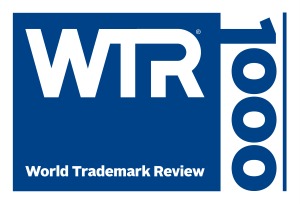Illinois’ Biometric Information Privacy Act, 740 ILCS 14/1 et seq. (“BIPA”), has been a fertile source of litigation against Illinois businesses for several years now. The targets of such lawsuits turned to their insurers for help in defending and resolving the cases. General liability insurers, for the most part, denied coverage and sued their insureds seeking court approval of those denials. In 2021, the Illinois Supreme Court decided that Commercial General Liability insurance for “personal and advertising injury” potentially covered BIPA lawsuits.[1] The Supreme Court also found that an exclusion for “Distribution of Material in Violation of Statutes” did not exclude coverage for such lawsuits.
Insurance companies, however, did not give up the fight. Instead, they continued to deny coverage based on three other exclusions often found in CGL policies: (1) “Access or Disclosure of Confidential or Personal Information”; (2) “Recording and Distribution of Material in Violation of Law”; and (3) “Employment-Related Practices.” The “Recording and Distribution” exclusion is very similar to the exclusion at issue in West Bend, but insurers have argued that it is broader than the West Bend exclusion. The other two exclusions were not at issue in West Bend – the policy in that case apparently did not contain the “Access or Disclosure” exclusion, and the insured had not been sued by employees. Thus, cases involving coverage for BIPA Lawsuits have continued to make their way through the court system.
Three recent decisions by Illinois federal courts have considerably strengthened policyholders’ arguments for CGL coverage for BIPA lawsuits. In the first decision, Judge Leinenweber found that the “Recording and Distribution” and “Access or Disclosure” exclusions did not exclude coverage for BIPA lawsuits.[2] The judge did find, though, that the Employment-Related Practices exclusion excluded coverage for the insured employer for BIPA claims by its employees. In the second and third decisions, Judge Kness and Judge Seeger found that not only did the “Recording and Distribution” and “Access or Disclosure” exclusions not exclude BIPA claims against the insured employers: neither did the Employment-Related Practices exclusion.[3]
With respect to the first two exclusions, the scorecard in federal court currently is 3-0 in favor of policyholders. Even for the Employment-Related Practices exclusion, the federal decisions favor policyholders two to one. Although we can expect that one or more of these decisions will be appealed, for now policyholders have fresh ammunition to seek coverage for BIPA lawsuits. And, with any luck, insurers may become more reluctant to deny coverage outright and instead undertake to defend their insureds as they agreed to do.
If you have any questions regarding general liability coverage for BIPA lawsuits brought against policyholders or any other insurance coverage issue, please contact Angela Elbert, Paul Walker-Bright, Ben Boris, or your Neal Gerber Eisenberg attorney.
—
The content above is based on information current at the time of its publication and may not reflect the most recent developments or guidance. Neal Gerber Eisenberg LLP provides this content for general informational purposes only. It does not constitute legal advice, and does not create an attorney-client relationship. You should seek advice from professional advisers with respect to your particular circumstances.
[1] See W. Bend Mut. Ins. Co. v. Krishna Tan Schaumburg, Inc., 2021 IL 125978.
[2] See Am. Family Mut. Ins. Co. v. Caremel, Inc., Case No. 20 C 637, 2022 WL 79868 (N.D. Ill. Jan. 7, 2022).
[3] See Citizens Ins. Co. of Am. v. Thermoflex Waukegan, LLC, Case No. 20-cv-05980, 2022 WL 602534 (N.D. Ill. Mar. 1, 2022); State Auto. Mut. Ins. Co. v. Tony’s Finer Foods Enters., Inc., Case No. 20-cv-6199, 2022 WL 683688 (N.D. Ill. Mar. 8, 2022).











